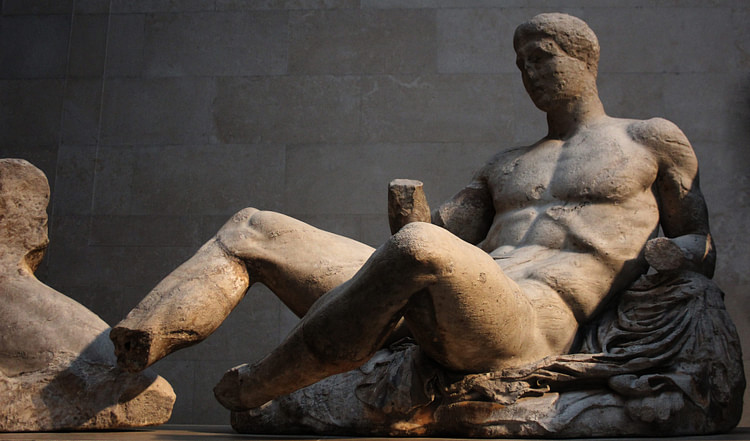In the realm of art and cultural heritage, few debates have been as persistent and impassioned as the one surrounding the Elgin Marbles. These ancient Greek sculptures, originally part of the Parthenon in Athens, have been at the center of a contentious dispute between Greece and the United Kingdom for decades.
The controversy surrounding these classical Greek sculptures has been reignited by the new English Heritage Chief, Dr Nick Merriman, who has called for a comprehensive acknowledgement of the colonial past to be integrated into the mainstream narrative of UK history.
The move comes as part of a broader initiative to confront the uncomfortable aspects of Britain’s historical legacy, particularly its colonial past. The recent statements by Merriman, as reported by The Guardian on November 24, 2023, highlight the need for a more inclusive and nuanced understanding of history.
The Elgin Marbles, also known as the Parthenon Marbles, which once adorned the Parthenon temple in Athens, were removed by Lord Elgin, the British ambassador to the Ottoman Empire, in the early 19th century. The marbles have been housed in the British Museum since 1816, sparking ongoing calls for their repatriation to Greece.
Dr Merriman, whose role is crucial in overseeing and managing England’s historical sites and artifacts, has now taken a bold stance by asserting that the colonial past must be an integral part of the UK’s historical narrative. This shift in perspective raises questions about the ethical dimensions of holding onto cultural treasures acquired during the colonial era and opens a new chapter in the ongoing debate surrounding the Elgin Marbles.
In his statement to The Guardian, Merriman emphasized the importance of acknowledging the complexities of history and ensuring that the colonial past is not relegated to the peripheries. This marks a departure from traditional narratives that have often romanticized Britain’s imperial history while downplaying its darker aspects.
Greece has long argued for the return of the marbles to their place of origin, contending that their removal during a period of Ottoman rule was neither legal nor ethical. The British Museum, on the other hand, has maintained that the marble was acquired through legitimate means and should remain part of its collection for the benefit of a global audience.

The recent call for a more inclusive historical narrative aligns with broader societal shifts, where there is a growing recognition of the need to confront uncomfortable truths about the past. As nations globally grapple with the implications of their colonial histories, museums, and heritage institutions are being challenged to reassess their roles in preserving and presenting cultural artifacts.
Dr Merriman’s remarks signal a commitment to reevaluating the ethics of retaining cultural treasures acquired during the colonial period. This stance resonates with similar movements worldwide, such as the widespread calls for the restitution of artifacts looted during the colonial era to their countries of origin.
To put the Elgin Marbles controversy in a global context, the repatriation of cultural artifacts has become a hot topic in recent years. Museums and institutions are increasingly facing pressure to review their collections and engage in transparent discussions about the provenance of their holdings. The return of stolen or unlawfully acquired artifacts to their countries of origin is seen by many as a step toward rectifying historical injustices.

Sunak’s Surprise Move
In a surprising turn of events, The Prime Minister of the UK, Rishi Sunak has cancelled a scheduled meeting with the Prime Minister of Greece, Kyriakos Mitsotakis casting a shadow over discussions about the potential return of the Elgin Marbles. The cancellation comes at a critical juncture in the longstanding debate over the contested classical Greek sculptures and raises questions about the United Kingdom’s stance on cultural restitution.
The scheduled meeting between Sunak and Mitsotakis was expected to provide an opportunity for diplomatic discussions on the Elgin Marbles and potentially signal a shift in the UK’s position on their return. However, the abrupt cancellation has added a layer of complexity to an already sensitive and diplomatically charged issue.
The decision to cancel the meeting was communicated through official channels, citing unforeseen scheduling conflicts. However, given the historical and cultural significance of the Elgin Marbles, speculation abounds regarding the true motivations behind the cancellation. Critics argue that the move may be interpreted as a deliberate attempt to avoid addressing the contentious issue of cultural restitution.
The renewed focus on the Elgin Marbles and Merriman’s call for the inclusion of the colonial past in mainstream UK history underscores the evolving nature of historical discourse. The Elgin Marbles, with their complex history, serve as a microcosm of these larger conversations, challenging us to reconsider the narratives that shape our understanding of the past.
